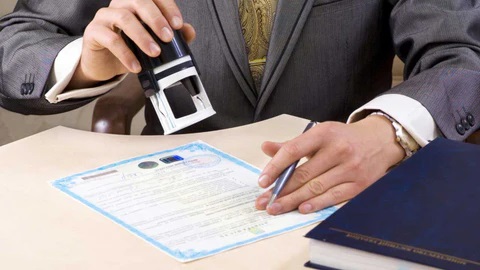Navigating the legal requirements in Dubai can be a daunting task, especially when it comes to document authentication. One critical process that expatriates and businesses alike must understand is certificate attestation. In this blog, we'll delve into what certificate attestation is, its significance, and why it is necessary in Dubai.

Understanding Certificate Attestation
Certificate attestation is a legal process that verifies the authenticity of a document, ensuring that it is genuine and can be recognized by the authorities in a foreign country. This process involves several stages, including verification by local authorities, the Ministry of Foreign Affairs, and the embassy or consulate of the country where the document will be used.
Types of Certificates Requiring Attestation
In Dubai, various types of certificates may require attestation, including:
- Educational Certificates: Degrees, diplomas, and other educational credentials need attestation for employment, higher education, or professional licensing.
- Commercial Documents: Business contracts, invoices, and other commercial documents require attestation for international trade, company formation, and other business activities.
- Personal Documents: Birth certificates, marriage certificates, and other personal documents must be attested for purposes such as visa applications, family sponsorships, and legal transactions.
The Attestation Process
The certificate attestation process typically involves the following steps:
- Notarization: The document is first verified and notarized by a public notary in the country of origin.
- Home Department Authentication: The notarized document is then authenticated by the respective State Home Department.
- Ministry of External Affairs (MEA) Attestation: The authenticated document is attested by the MEA in the country of origin.
- Embassy Attestation: Finally, the document is attested by the embassy or consulate of the UAE in the country of origin.
Once the document reaches Dubai, it may require further verification by the Ministry of Foreign Affairs and International Cooperation (MOFAIC).
Why Certificate Attestation is Necessary in Dubai?
Certificate attestation is crucial for several reasons:
- Legal Compliance: Attested documents ensure compliance with UAE laws and regulations, avoiding legal complications.
- Employment and Education: Employers and educational institutions in Dubai require attested certificates to verify the qualifications and credentials of expatriates.
- Business Transactions: For businesses, attested commercial documents are essential for establishing credibility and ensuring smooth international transactions.
- Visa and Immigration: Attested personal documents are necessary for visa applications, residency permits, and family sponsorships.
Challenges in the Attestation Process
The certificate attestation process can be complex and time-consuming, involving multiple authorities and lengthy procedures. Common challenges include:
- Delays and Bureaucracy: Navigating the bureaucratic processes and dealing with delays can be frustrating.
- Authenticity Concerns: Ensuring the authenticity of documents at each stage of attestation is critical to avoid rejection.
- Legal Knowledge: Understanding the specific requirements and procedures for different types of documents can be challenging without professional assistance.
The content of this article is intended to provide a general guide to the subject matter. Specialist advice should be sought about your specific circumstances.

